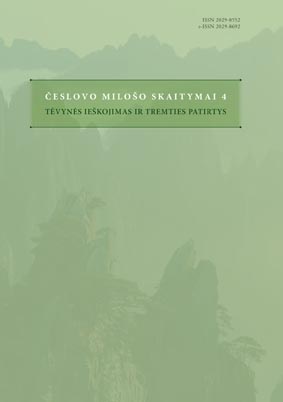Siužeto modernizacija Oskaro Milašiaus literatūrinėse pasakose
The Modernization of Plot in Oscar Miłosz’s Literary Tales
Author(s): Loreta GustainienėSubject(s): Literary Texts
Published by: Vytauto Didžiojo Universitetas
Keywords: folklorinė ir folkloriškojo tipo literatūrinė pasaka; siužeto modernizacija; autorinis intarpas; folk tale and folk type literary tale; plot modernization; author’s insert
Summary/Abstract: The aim of the article is to reveal literary tale of Oscar Miłosz, to compare them to the examples of authentic Lithuanian folk tales and especially to emphasize an author’s comment, his “inserts” in a folk text. In the article Oscar Miłosz’s translations of Lithuanian folk tales Senosios Lietuvos pasakos ir pasakojimai (O. V. de L. Miłosz “Contes et fabliaux de la vieille Lithuanie”, 1930) and Mano motušės pasakojimai (O. V. de L. Miłosz “Contes Lithuaniens de ma mère l’oie”, 1938) to French are viewed as folk type literary tales. They have repeatedly received the attention of Lithuanian, Polish and French literature and folk specialists. The comparative analysis of Lithuanian folk tales Lietuviškos pasakos įvairios (first and second volume) compiled by Jonas Basanavičius and their translation by Miłosz highlights and develops the features common for Miłosz’s tales: an ironic narrator’s point of view towards complicated problems of human existence; an author’s inserts destroy the logic of neutral narration typical for folk tales. This research considers that in inserts in folk tales Oscar Miłosz changes the value system and the relationship between characters according to the moral imperative of the New Testament. While comparing Oscar Miłosz’s tales with Lithuanian folk tales, the methodological provisions of other folk tale researchers were taken into consideration, particularly, professor Bronislava Kerbelytė who notes that the plots of Lithuanian folk tales are stable only in macrostructure, while they vary in the plot structure; therefore, categorical assertions are avoided and only assumptions are provided.
Journal: Česlovo Milošo skaitymai
- Issue Year: 2011
- Issue No: 4
- Page Range: 168-174
- Page Count: 7
- Language: Lithuanian

